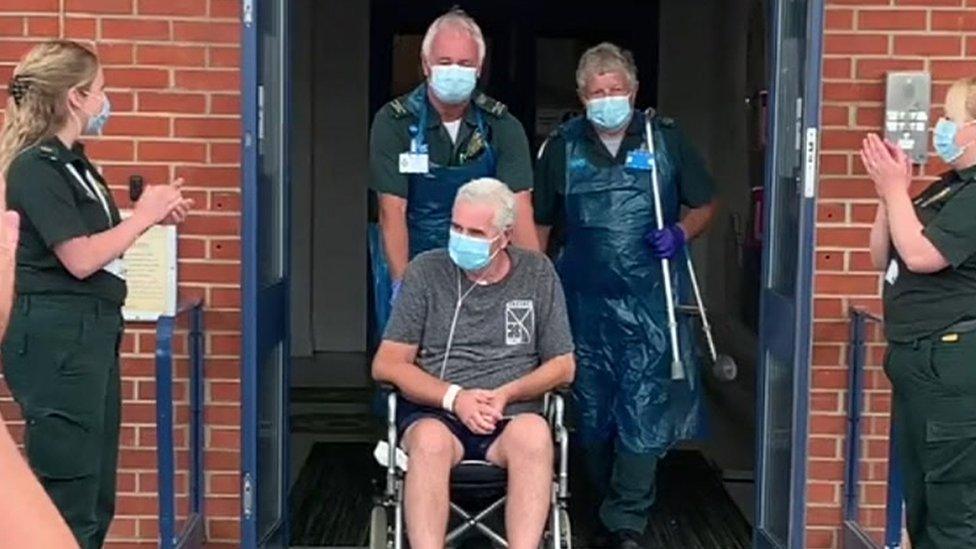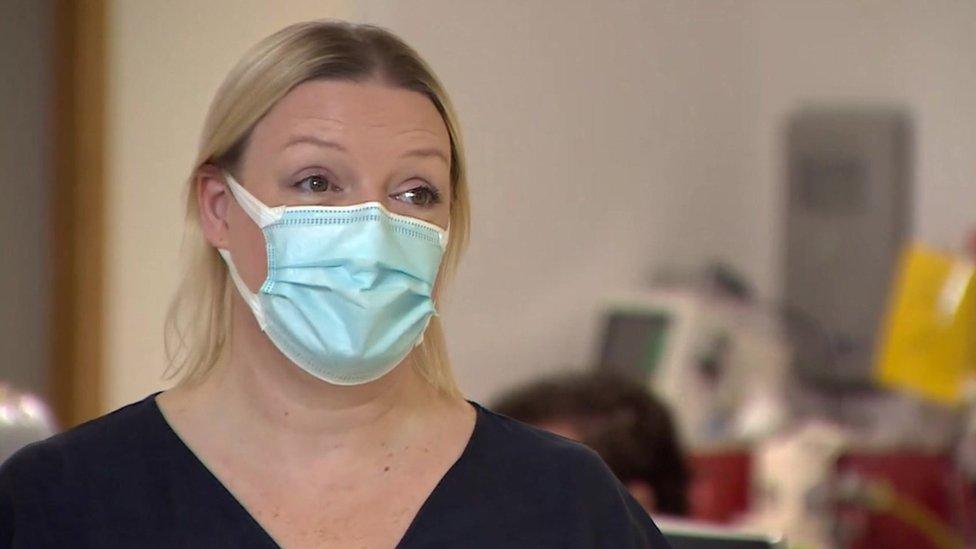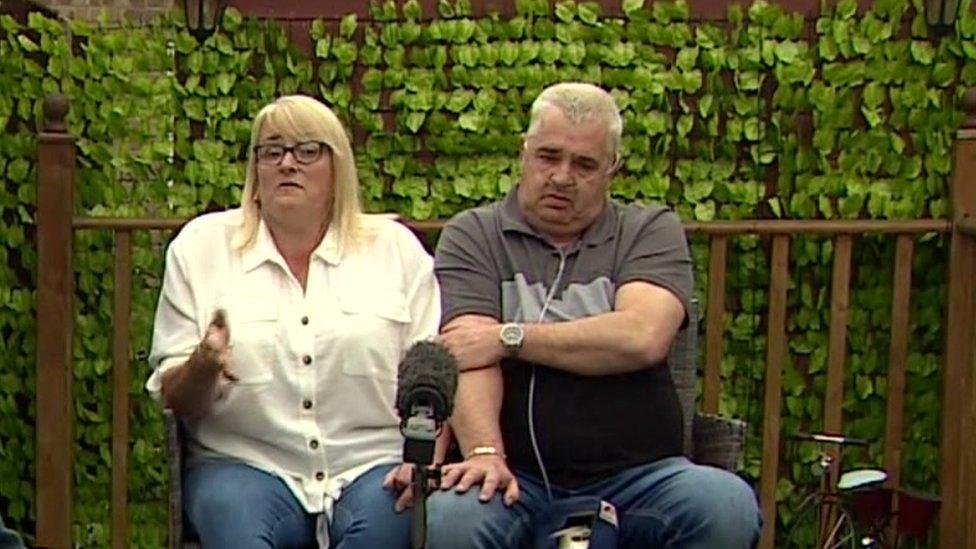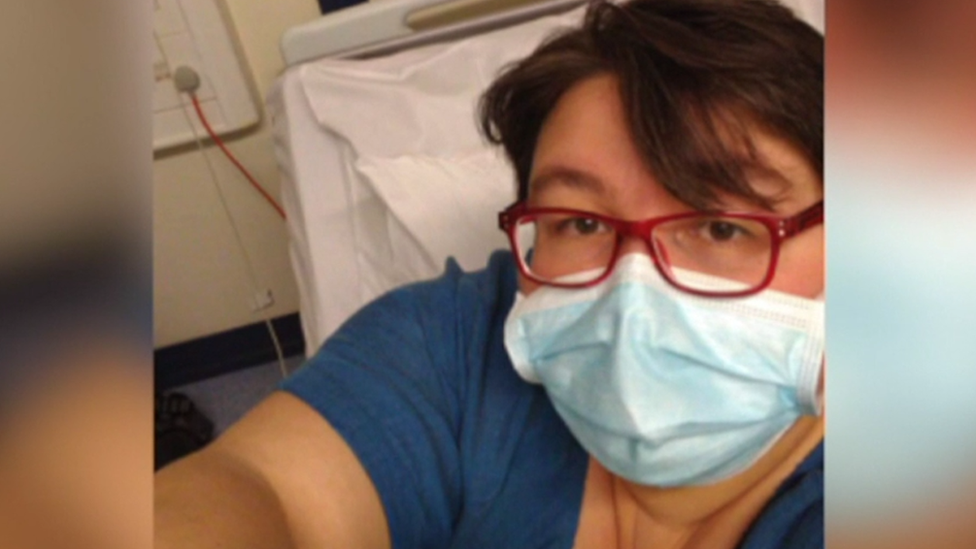Covid: Cambridge drugs trial aims to prevent patient readmissions
- Published

Ambulance driver Nigel Fitzmaurice was discharged after five weeks in hospital but has been left with health complications
University of Cambridge researchers are leading a trial into treatments to stop people who needed hospital care for Covid-19 being readmitted.
The Heal-Covid, external study is being led by Dr Charlotte Summers from Addenbrooke's Hospital and the university.
Two common drugs, a blood thinner and an anti-inflammatory, are being trialled to see if they improve longer-term outcomes for Covid patients.
A study, external found one in 10 Covid patients die within six months of discharge.
The Office for National Statistics also found three in 10 people are readmitted within the six-month period after being discharged.

Dr Charlotte Summers said the drugs were "relatively cheap" and "widely available"
Dr Summers said the figures were "really quite alarming".
"We are aiming to find therapies that might change this outcome and help patients live longer and feel better," she said.
"Apixaban is a clot-busting drug and we know people with coronavirus infection are at an increased risk of getting clots in their lungs and their legs, so this is to try and target that in the post-hospital phase.
"Atorvastatin is a statin which is a good anti-inflammatory and probably targets some of the disease processes that are ongoing in people with Covid."
Dr Summers said the "really important things" about the two drugs were that they were "relatively cheap, easy to take as they're tablets and they're widely available".

Nigel Fitzmaurice said the study would be "really important" to help people like him who have experienced longer-term
Nigel Fitzmaurice was hospitalised with Covid in June. He was placed in a coma in intensive care at Colchester Hospital before being transferred to Royal Papworth Hospital in Cambridge.
"My wife Lisa was told on two occasions I wasn't going to wake up," the 57-year-old said.
The ambulance driver from Clacton, Essex, experienced a bleed on the brain and a stroke while in hospital.
Since being discharged, Mr Fitzmaurice said the health problems had continued.
"I've come away with PTSD, lost my upper body strength, I tire easily and have ulcerative colitis," he said.
Dr Summers said the aim of the trial was "trying to ensure patients like Nigel never have to come back once they leave hospital".

Find BBC News: East of England on Facebook, external, Instagram, external and Twitter, external. If you have a story suggestion email eastofenglandnews@bbc.co.uk, external
- Published25 March 2021

- Published18 March 2021

- Published29 September 2020
